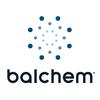acidosis in dairy cattle
Forum: Acidosis in Dairy
Published: July 18, 2011
By: dr.Usman Ghani
Hi, I´m a student of D.V.M 4th year. I want to treat animals who have developed acidosis due to excessive feeding or intake of concentrate(grains). How can I treat small animals particularly goat although I already administered sodium bicarbonate (baking soda) but no effective result achieved. Could anybody recommend an effective treatment of acidosis?
Related topics:
Recommend
Comment
Share
18 de julio de 2011
Dear Usman,
Have you considered that in nature goats were always self fed only on green leaves.So it would seem you can try increasing the green leaf fodder to start with. Next you may like to recall that good drinking water for goats used to be from clean streams. Now such good clean drinking water is rare even for humans. Good clean mineral rich sweet drinking water slightly alkaline . Its pH can go up to 8.5..
In my humble opinion try improving these instead of treating with medicines.
Recommend
Reply
Intas Pharmaceuticals Ltd.
18 de julio de 2011
I fully agree with Dr.Subodh, however the question by Dr.Usman is the treatment of already affected goats.
This is rampant even in the indian conditions, when goats are reared in urban places.
The treatment is to feed Sodium Bicarbonate, around 25 gm saturated in 1/2 litre of water.
Hope this works for you Dr.Usman
Recommend
Reply
18 de julio de 2011
Sodium bicarbonate - a good suggestion. But take care of water. Make it alkaline if possible.
Recommend
Reply
19 de julio de 2011
The first thing is to avoid excessive feeding of grains unnecessarily. In extreme emergency conditions you have to administer Ringer lactae solution i/v, provided the the functioning of liver is OK. You have to add probiotics along with feed, if you have the chances of exceesive feeding. Also, you can give buffering agents such as monosodium phosphate. Avoid mixing of animals with different sizes body condition score and strength to avoid competion in feeding and chances of getting overfed due to sidelining of other animals with power.
Recommend
Reply
Recommend
Reply
19 de julio de 2011
Give Ringer Lactate IV if liver in normal,
In my opinion if Sodium bicarbonate doesn't work then go for purgatives like Magnesium sulfate.
Recommend
Reply


BOVIMIN – GL
BOVIMIN–GL are Glycine chelated minerals to improve conception rate, Reduces cow open day, Improves pregnancy rate, prevent Masitis, all in dairy cattle
Suggested link
Origin Vet Nutrition Marketing Private Limited
19 de julio de 2011
You may try Ringer lactate i/v but it does not increase the rumen dilution. If the concentrate feeding with grains is there, best is to use either live yeast that considerably scavanges the oxygen in the rumen making the rumen environment more to anaerobic. That leads to maintain acetate: propionate ratio. Alternate ius to use yeast metabolites (Diamond V XP) @ 50g/animal/day, that increases the population of fiber digesting bacteria, lowering lactate producing bacteria making the shift in rumen pH. Thereby more propionic acid is produced by converting lactic acid in propionates. This results into increase in butterfat content of milk and then eventually milk yield also.
You can also try buffers but the rate of rumen dilution is also a matter of difference.
Recommend
Reply
19 de julio de 2011
you have to give magnesium carbonate with sodium carbonate 50g in 500 ml of drinking water
Recommend
Reply
Kemin Industries, Inc
19 de julio de 2011
Give buffers (combination of NaHCO3 & Mg ) as preventive when you are doing stall feeding of goats with high grain percentage .
Recommend
Reply
19 de julio de 2011
Treatment usually includes drenching with a solution of sodium bicarbonate, administration of an
antibiotic to suppress the lactic acid-producing bacteria and a change in feeding practices.
Recommend
Reply
Alltech
19 de julio de 2011
Addition of Yea-sacc 1026 in feed can reduce the risk of acidiosis. In addition it will improve the feed efficiency, body condition and milk production significantly.
Recommend
Reply

22 de julio de 2011
thanx to all doctors of pakistan as well as foreigners
Recommend
Reply

24 de julio de 2011
Dear all,
To buffer the acidity and increase pH put your goats on roughage or increase amount of roughages in diet like wheat straw and provide exercise.
Monitor the excessive feeding and do not feed home refusals in large quantity.
You did not mentioned what is the management systems and for what purpose you are raising goats? Is it intensive, semi-intensive, zero-grazing or partially grazing?
Recommend
Reply


Evonik Animal Nutrition
EVONIK ANIMAL NUTRITION is committed to improve sustainability, health and efficiency along the food chain to feed growing population with animal protein.
Suggested link
13 de diciembre de 2011
Dear all
I agree with Syed Hasan Raza .I think first of all you should use of Sodium bicarbonate and also feed just of forage such as alfalfa hay. It would be an increase of rumen pH.
Recommend
Reply

14 de diciembre de 2011
I think in this case rhetorician drugs are also important to increase motility with good hay. Also give normal saline solution I/V . Ruminal cud from healthy goat can be transplanted.,
Assistant Manager- Dairy Farms, Vivante Pure Foods Pvt. Ltd.,Ahmedabad
Recommend
Reply
14 de diciembre de 2011
Dear All,
The treatment approach to ameliorate rumen acidosis in goats is often practised. But it is very vital to find out the route causses of acidosis. Goat being a small ruminant it is necessary to examine the rumen metabloism of feeds first. In fact if the feed remains over 64 hours in rumen 80% of dry matter would be fermented. However in normal case 60% would undergo microbeal fermentation. The pH of feed and rumen are very important. two thrid of DM would be converted to volatile fatty acids. More of propionic acid production may also cause acidosis. Again encouragement of lactcobacillus may produce lactic acidosis. Therefore a well balanced feeding in terms of nutrients and digestibility would prevent such problems.
I have maintained goats on concnentarte feeding with out grass or fodder and never experienced any acidosis. Please read my article on Broiler Goat. Understand rumen metabolism is more useful than treating acidosis with antizymotic agents which will depress the digestibility.
Recommend
Reply

14 de diciembre de 2011
Please read rhetorician drugs as rumenotoric drugs.
Recommend
Reply


Balchem Animal Nutrition
Balchem Animal Nutrition and Health is the global leader in choline production for rumen bypass nutrients.
Suggested link
14 de diciembre de 2011
Dear All,
Providing a lick block which can manipulate rumen fermentation could bring complete solution for such problems of acidosis, loose motion etc. Interested can conact me for the technology details pgkjohn@gmail.com
Recommend
Reply
14 de diciembre de 2011
Dear all
Please find below article for your update.
Abstract
Ruminal acidosis was induced in twenty-one 10-month-old West African Dwarf Goats by feeding a suspension of 80 g wheat flour per kg bodyweight (day 0) through a stomach tube. Ruminal and systemic acidosis was diagnosed on day 1 in all goats. Clinical signs included loss of rumination and appetite, trembling, and watery diarrhoea. The detection of acidic faeces during the first 24h was considered of diagnostic importance. Subgroups were treated orally on days 1, 2, and 3 either with 1 g of sodium bicarbonate per kg bodyweight, with 1 g of baking yeast per kg, or with a combination of these treatments at 0.5 g of each per kg. A fourth group served as untreated controls. Peroral bicarbonate neutralization was highly effective in the treatment of rumen acidosis, whereas the use of yeast was found ineffective. The combined treatment had a moderate effect probably due to the bicarbonate. Three fatal cases (60%) occurred in the untreated group compared with none in the bicarbonate group, and 2 in each of the remaining groups. This corresponded to 33% of the yeast treated group and 40% of the combined treated group. Details were given on post mortem examinations performed on all survivors on day 11. Lesions included subacute rumenitis and abomasal ulcers. No lesions were found in 3 of the bicarbonate treated goats and in 2 of the animals receiving combined treatment.
Department of Clinical Studies, Royal Veterinary and Agricultural University, Frederiksberg, Denmark.
Recommend
Reply


BOVIMIN – GL
BOVIMIN–GL are Glycine chelated minerals to improve conception rate, Reduces cow open day, Improves pregnancy rate, prevent Masitis, all in dairy cattle
Suggested link
14 de diciembre de 2011
Hello, The Professor and Head, Dept. of Animal Nutrition, Madras veterinary College, Vepery, Chennai-600 007 has developed a solution named "Grand" which is very effective to acidosis and practically showed improvement in milk yield.
Recommend
Reply

Would you like to discuss another topic? Create a new post to engage with experts in the community.














